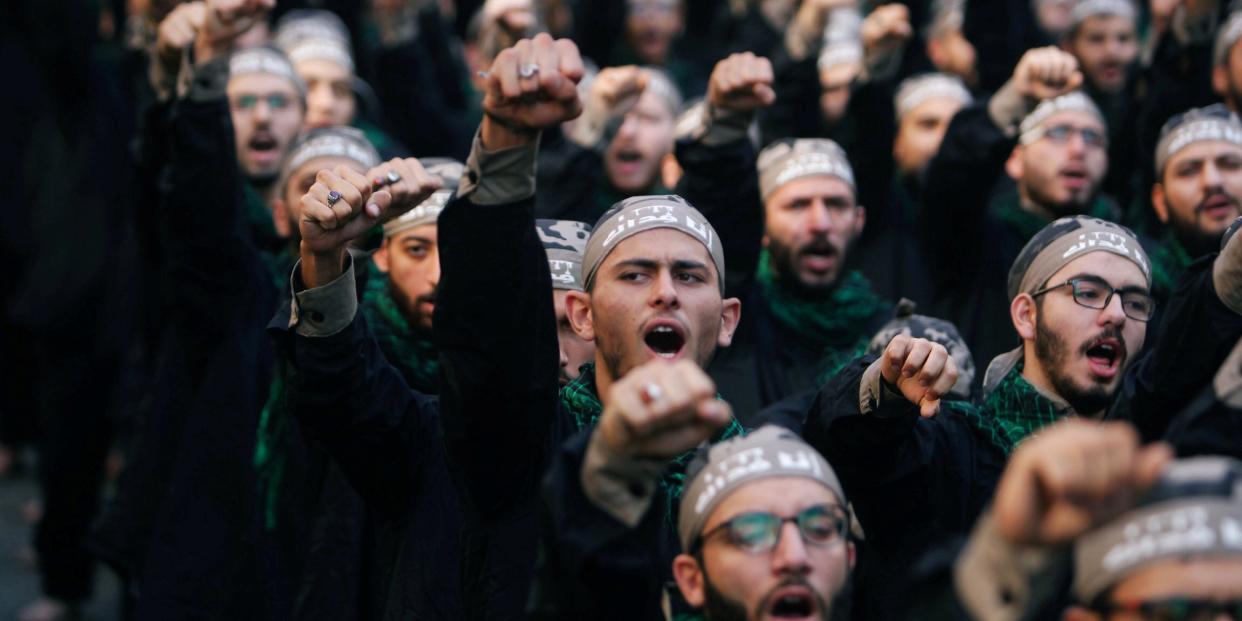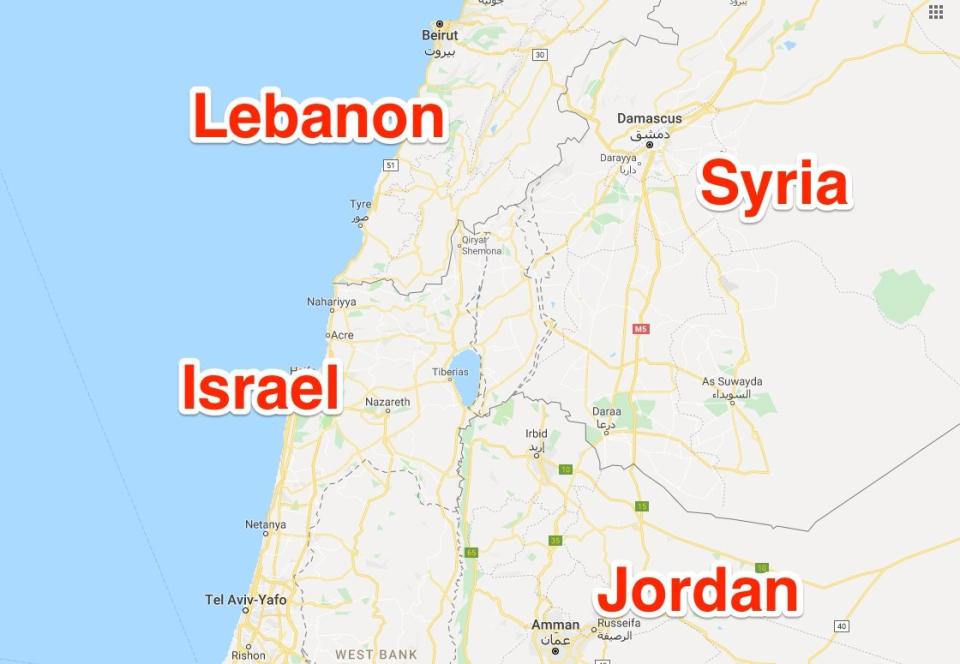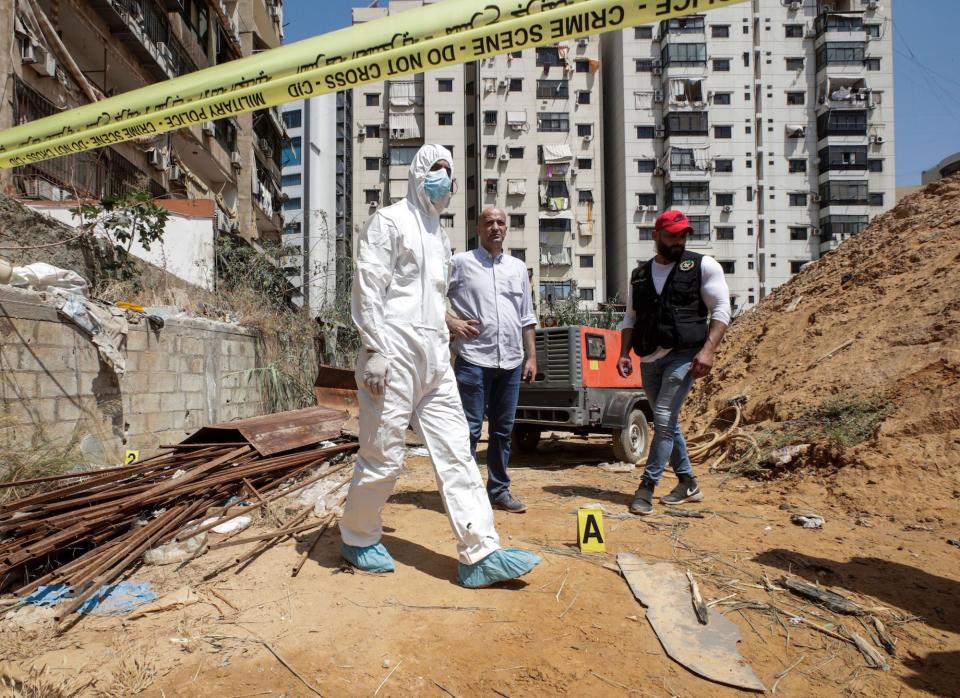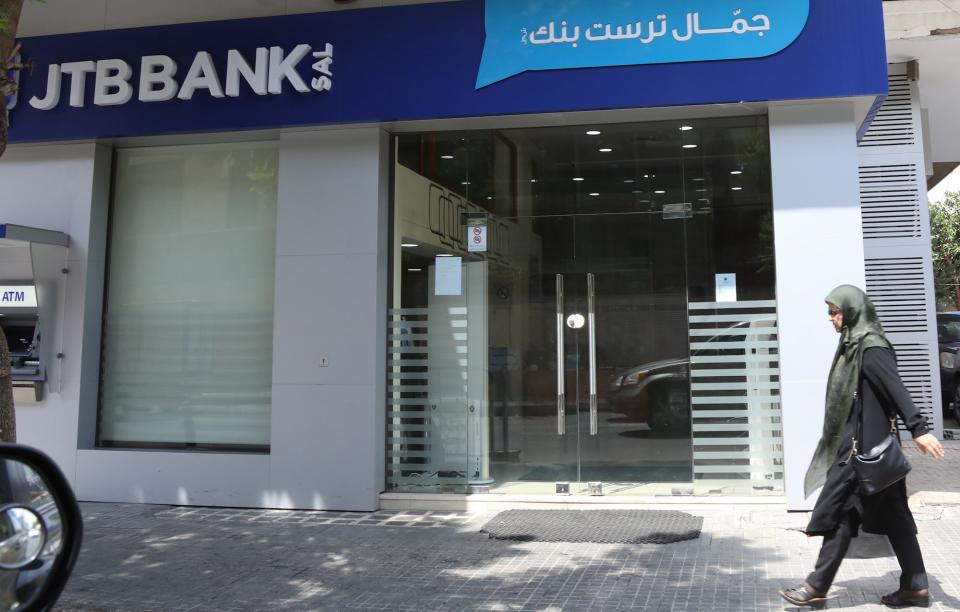The US put sanctions on a Hezbollah-linked bank, a likely show of support for Israel as conflict with Lebanon looms

Reuters
US officials entered the surging conflict between Israel and Lebanon Monday, imposing sanctions on a Lebanese bank linked to Hezbollah.
It came as Israel identified what it said were the leaders of an Iran-backed Hezbollah tech project which has prompted a series of air strikes.
Tensions in the region are at their highest since Lebanon and Israel fought a brutal, month-long war in 2006.
The US jumped to support Israel in its escalating confrontation with Hezbollah, and its sponsor Iran, by imposing new sanctions on a Lebanese bank it accused of money laundering.
US officials say the move is a warning to Lebanon to better control the group.
At almost the same time as the new sanctions were imposed, Israel identified key leaders of a joint Iranian-Hezbollah military technology project it said is meant to design and manufacture precision-guided missiles.
It warned that the last week of air strikes targeting the project — at least five in four days across Lebanon, Syria and Iraq — will continue unless the project is shut down.

Google Maps/Business Insider
The US sanctions came from the Department of Treasury's Office of Financial Control (OFAC) and targeted Jammal Trust Bank, which has branches throughout parts of Lebanon, and is widely seen as being under the control of Hezbollah.
The sanctions — among the most powerful non-military steps the US government can take — bar any company around the world from doing business with the bank and its life insurance subsidiaries.
The government says the reason is that the bank's officers maintain close working relationships with Hezbollah's military and political leadership.
"Treasury is targeting Jammal Trust Bank and its subsidiaries for brazenly enabling Hizballah's financial activities. Corrupt financial institutions like Jammal Trust are a direct threat to the integrity of the Lebanese financial system," said Sigal Mandelker, Under Secretary for Terrorism and Financial Intelligence, in a news release.

ANWAR AMRO/AFP/Getty Images
He continued: "Jammal Trust provides support and services to Hizballah's Executive Council and the Martyrs Foundation, which funnels money to the families of suicide bombers."
(Hizbollah is an alternative spelling.)
The US has designated Lebanese banks for sanctions related to doing business with Hezbollah repeatedly in the past.
But Thursday's designation in particular appears to be as a show of support for Israel, which finds itself in the midst of escalating tensions with Hezbollah.
They stem from what Israel says is a sophisticated program to increase the accuracy of the group's estimated 100,000 missiles and rockets, which are alleged to be targeting Israel from an extensive bunker complex spanning the Lebanese-Israeli border.

Getty Images
Israel has either admitted or strongly hinted at responsibility for a drone attack Sunday that targeted high-tech missile technology in a Hezbollah controlled suburb of Beirut, as well as strikes in Damascus, Lebanon's Beqaa Valley and against Iranian-backed Iraqi militias.
While Israel has targeted Hezbollah and Iran's supply lines in Lebanon and Syria hundreds of times in the last eight years, the recent strikes were both more blatant. They also hit targets in Iraq, which Israel has not done for nearly 40 years.
The Lebanon-Israel border was the scene of non-stop conflict during the 1980s and 1990s, but has remained quiet since the month-long war between Hezbollah and Israel in 2006.
But as Hezbollah winds down its involvement in the Syrian civil war and firmly establishes itself along the Israeli border with Syria as well as Lebanon, the group and Israel appear to have joined a new cycle of retaliation and accusation.
To defend its aggressive posture, and perhaps warn the Hezbollah leadership against fulfilling a promise to respond to the attacks, Israel released a dossier of general information identifying three Iranian officers with the Islamic Revolutionary Guard Corps who work on the missile development project inside Lebanon.

